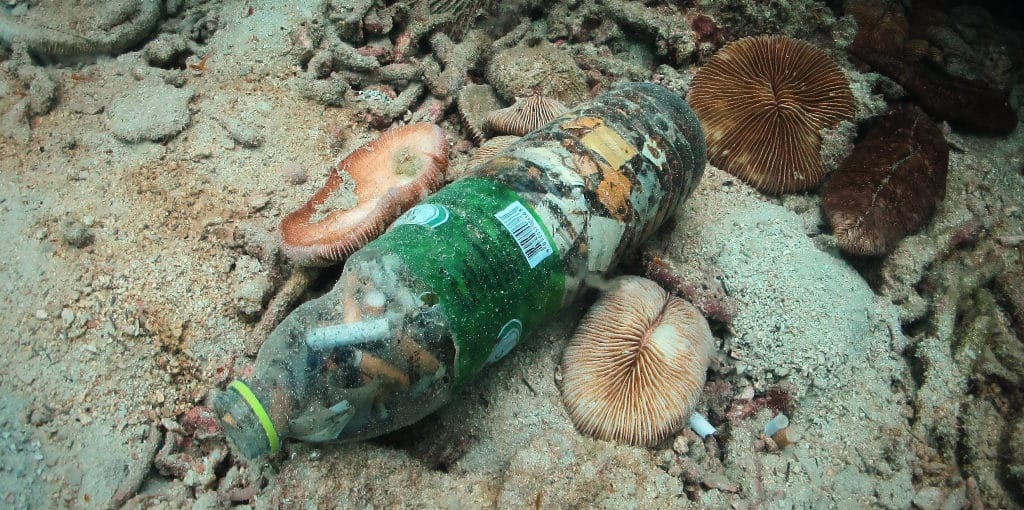By now we have all heard about how plastics and marine debris are chocking our oceans and killing marine life, but do you know what the number one source of this debris is? Recent studies have shown that the primary item littering our beaches and oceans are cigarette filters. In fact, it is estimated that 4.5 trillion filters are littered to the environment every year, totaling more than 750,000 tons. Studies have found that globally there are about 3.5 cigarette filters per every square meter on our beaches. This is not only unsightly and disgusting, but it is also toxic to aquatic organisms, and is destroying the base of many marine tropic structures.

What’s wrong with Cigarette filters?
Cigarette filters are primarily made of a plastic fiber called cellulose acetate (95%), mixed with a semi-synthetic fiber called rayon. Each cigarette contains more than 15,000 of these fibers. They are not readily biodegradable, and in the marine environment can persist for over 10 years. As they break down, they become smaller and smaller pieces which are called microplastics, and are readily consumed by all animals. A study by the University of Plymouth looked at deep sea marine sediments (3,500 meters deep), and found that there are about 4 billion of these fibers per square kilometer. These deep-sea marine sediments form the largest habitat on the planet, and they are filling up with plastic. But its not only the plastic fibers that scientists are worried about when it comes to cigarette filters, its all the contaminants they carry with them.
Cigarette filters are toxic
When a cigarette is smoked, the filter absorbs over 400 different chemicals, including heavy metals and nicotine. Nicotine is a neurotoxin, which greatly affects the behavior, growth, and survival of many organisms exposed to it. When filters are littered, the nicotine and other chemicals then leach out of the filter and contaminate our waters. Water flowing out of urban areas contains around 60 times the concentration of nicotine that is needed to affect freshwater and marine worms. Each cigarette contains between 0.8–1.9 mg of nicotine, and just 1 filter can contaminate 1,000 Liters of water above the ‘no-effect’ threshold. A 2011 study looked at the effect of the leachate filters on freshwater and marine fish, and found that the LC 50 (the concentration at which half the fish exposed would die) was “approximately one cigarette butt/L for both the marine topsmelt (Atherinops affinis) and the freshwater fathead minnow (Pimephales promelas).”
Cigarette Filters are Killing Marine Worms
Another study from 2015 has looked at how these filter fibers and the chemicals leached from them are affecting marine worms. Marine worms are one of the planet’s most important organisms as they form the base of the world’s largest food web, and also impact water column processes, and global biogeochemical cycles. The study looked at Ragworms exposed to filters and their leachate, and concluded that “Ragworms exposed to smoked cigarette filter toxicants in seawater at concentrations 60 fold lower than those reported for urban run-off exhibited significantly longer burrowing times, >30% weight loss, and >2-fold increase in DNA damage compared to Ragworms maintained in control conditions.” These are highly significant findings, because essentially if these worms die-off, so do our oceans.
Let’s stop this now!
Cigarette filters are the world’s number one source of marine debris. They act as a vector for the “transport and introduction of toxicants, including heavy metals, nicotine and known carcinogens, to aquatic habitats.” Urban areas far from the ocean are the leading contributor to this problem, as the microfibers and leachate from them gets into water ways and flows to the sea, contaminating the coastal areas and remote deep-sea areas alike.

This is a problem which should not exist, as there is no valid excuse for it. The first thing that needs to change is human behavior, people need to understand that these filters are not a bio-material, and do not readily breakdown in natural environments. Second, the companies that produce these filters need to be held accountable. They have long known the effect that they are having on the environment, and the fact that the filters have been shown to be ineffective at removing toxins, tar, or carcinogens from the cigarette smoke. Their primary function is just to keep tobacco from the mouth of the user, and to give a solid mouth piece from which to smoke. They are also cheaper than tobacco and help to make the product look larger. More environmentally friendly and effective materials have been proposed, but they cost more and are thus ignored by the industry. Well, its time we all stood up and stopped ignoring this issue before it destroys our oceans, and us with it.
